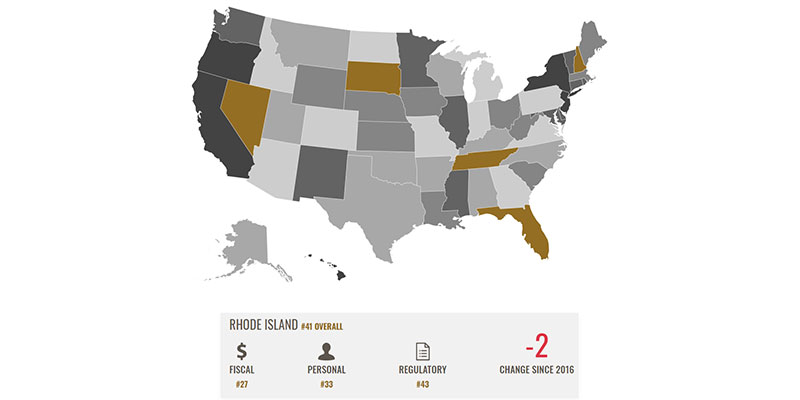Geena Pham is a progressive candidate for state senate and a public school teacher. Here she is tweeting about Patricia Morgan’s controversial comment:
Delete your fucking Twitter, Patricia. You’re a disgrace to Rhode Island.
Honestly, a world in which a public school teacher running for political office tweets such a thing is exactly a world in which Morgan’s comment is 100% justified.
[Open full post]Republican state representative from West Warwick Patricia Morgan has gone viral with the following tweet:
I had a black friend. I liked her and I think she liked me, too. But now she is hostile and unpleasant. I am sure I didn’t do anything to her, except be white. Is that what teachers and our political leaders really want for our society? Divide us because of our skin color? #CRT
In a mature and sane society, this might be an open door for heartfelt discussion (which people would pass by if they weren’t going to take it in that spirit), but we don’t live in a mature and sane society. Instead, Morgan’s lament attracted satire from an original Star Trek crew member.
After all, she provided an opportunity for mainstream progressives to feel superior while advancing their preferred narrative. Naturally, the Boston Globe has dressed that effort up as a straight news report (just reporting the reactions, donchaknow).
Black Lives Matter RI PAC wants Morgan removed from committees to prove racism “can no longer be tolerated.” The Globe gives other politicians the field to insult and condemn Morgan, and House Speaker Joseph Shekarchi “issued a statement, saying, ‘There is no place for divisive remarks by any House member.'”
That’s interesting. Very interesting.
What gives the whole disgusting game away, however, is when Boston Globe journalists Brian Amaral and Edward Fitzpatrick give the floor to far-left state Senator Tiara Mack:
Senator Tiara Mack, a Black Providence Democrat, said, “I don’t think Morgan is respected nor a thought leader. I think tweets like these are sensational for her base but not grounded in reality. I also wonder if her ‘Black Friend’ would consider her association with Morgan a friendship.”
Honestly, the first thing that came to my mind upon seeing the mainstream machine revving up on social media was this Tweet from Senator Mack back in November:
My standards for white people was always high AND it just got higher. If you aren’t actively confronting how you uphold white supremacist systems I don’t have time for you.
As I suggested at the same time, this is straight-up racism. The bottom line is that anybody reacting to Morgan’s tweet who didn’t respond to Mack’s is a fraud. Maybe they’re deceiving themselves, but they’re still frauds.
It’d be nice to live in a world where we could put the two tweets next to each other on the table and discuss what, together, they say about our current society, but people are making lots of money and getting lots of self-affirmation by preventing that world from existing.
Featured image by Clay Banks on Unsplash.
[Open full post]I’m with Ed Driscoll in finding it political that CBS would edit out its reporter’s complaints about the harm of COVID restrictions on kids:
Longtime CBS reporter and chief legal correspondent Jan Crawford went viral on Sunday and Monday on social media following comments, meant to air on Sunday’s Face the Nation, that slammed our elected officials and public health experts for “the crushing impact that our COVID policies have had on young kids and children” and the subsequent mental health crisis. However, CBS News kept her comments out of the actual show.
Frankly, it’s this sort of stuff that makes me less willing to consider mainstream calls for control measures. I just don’t believe that the people providing information to the majority of citizens are telling the truth.
[Open full post]There’s something actually amazing about this transcript from a news segment on NPR. From the perspective of people who see the world with the same eyes as the host, Melissa Block, and her producers, the piece will appear coherent and reinforcing. From the perspective of those who don’t see the world with the same eyes, it looks like a big bundle of propaganda and lies.
Start with the headline:
Biden aims to help hospitals by sending military doctors and nurses to help
This is written in the “Dear Leader” voice. The subject is the ruler. The verb is his good intention (“aims to help”). An armchair psychologist might make much of the fact that the headline repeats the phrase, “to help,” as if it is a comforting mantra.
More significantly, however, the interview really isn’t about what Biden is doing; it’s about what Rhode Island hospitals are experiencing. That is, National Public Radio’s purpose for the story is clearly different from what the story is. This disconnect has two implications. First, NPR wants anybody who is just skimming headlines to know that Biden is helping, not that Rhode Island is struggling, which is what the story describes. Second, NPR thinks that Rhode Island’s struggling is actually about Biden’s helping. In other words, the Ocean State supports the notion of Biden’s goodness and justifies his position.
Of course, any good ideological propaganda about government trying to fix problems that government has either caused or been unable to handle has to have a scapegoat, and in this case, the finger points at the unvaccinated.
Block draws Kent Hospital Chief of Emergency Medicine Laura Forman into recitation of the proper narrative without extracting a single confounding fact or challenging a single assertion. Listening to the segment or reading the transcript, one would conclude that RI hospitals are filled with unprecedented numbers of COVID patients, but they’re not.
The day before this segment aired (which is the last day for which the state has currently provided data), there were 273 people in the hospital testing positive for COVID. On the same date last year, the number was 486. Vaccines may or may not deserve credit for this decrease, but you can’t blame people who have not been vaccinated for the fact that hospitals are unable to accommodate 44% fewer patients.
Adjusting one’s perspective accordingly casts a different light on this portion of Dr. Forman’s testimony:
The situation right now in the hospital is worse than I’ve seen it in the last two years. The onslaught of patients with COVID right now is unlike anything I’ve seen. It’s relentless. At this point, I’m surprised if a patient tests negative for it. Even patients who are coming in after car accidents or with ankle sprains are testing positive. The community spread here is nothing short of wildfire at this point. And it’s overwhelming the hospital. We are routinely running out of beds. We’re running out of IV pumps. We’re running out of pillows. In 20 years in emergency medicine, I’ve never seen anything like this.
Above all, Forman’s claim is demonstrably false. A year ago, Rhode Island hospitals went ninety days with more COVID cases than they have right now. Again, if the situation is worse right now, it isn’t because the flow of COVID patients is “relentless.”
Read more deeply, however. Apparently, Kent Hospital is testing every patient who comes in, whatever the reason for admission. The problem is not COVID as an illness, but COVID as a test result. Ankle sprains are not overwhelming the hospital. Enhanced precautions for people with no symptoms, a shortage of nurses (which, we’ve been told, was a pre-existing condition in RI), and supply chain problems having to do with economic shutdowns, stimulus-driven inflation, and plain poor government management are the factors overwhelming the hospital.
If the virus is spreading like “wildfire” but producing nearly half the hospitalizations, one has to wonder: so what? The more mild variants become, the more they can be seen as natural vaccines. If vaccinated people are catching it without serious complications, it’s essentially a natural booster. And if a little bit of honest analysis shows that precautions and undue fear are really the cause of Rhode Island hospitals’ apocalypse, then it is insanity to resort to fear to beat the public into compliant submission in the hopes that it will drive down the hospitalization numbers even more.
Featured image by AdhySavala on Unsplash.
[Open full post]On WNRI 1380 AM/95.1 FM, John DePetro and Justin Katz discuss:
- The harm of mandates
- The dropped ball of testing
- The nursing crisis
- Some political predictions for 2022
Featured image by Engin Akyurt on Unsplash.
[Open full post]Articles like this from the New York Times are a fascinating view into a worldview where the frame is just shifted (off, I’d say) by a little bit. (Search the link in Google to read the article if it’s blocked when you click.)
In a Northern California school district, the superintendent is taking shifts as a lunchroom monitor. In Louisville, Ky., nonprofit groups are losing social workers to better-paying jobs at Walmart and McDonald’s. And in Rhode Island, child welfare organizations are turning away families from early-intervention programs because they are short of personnel.
The nationwide labor shortage in recent months has led to delayed shipments, long waits at restaurants and other frustrations for customers and employers alike. But many for-profit businesses have been able to overcome their staffing difficulties, at least in part, by offering higher wages to attract workers.
This is the problem with “non-profits.” They’ve been set up as if they’re some unique creature with a special blessing upon them. The reality is that you cannot suspend price mechanisms. If elected officials cannot find support for increases, then it’s a signal that the community only values the service at the rate that employees are willing to accept, when considering pay in combination with rewarding work.
When things are processed through the political system, everybody seems to conclude that the laws of reality (including economics) are suspended. It’s very strange… but it does facilitate useful rhetoric for self-serving activists.
[Open full post]The Cato Institute’s Freedom in the 50 States index has Rhode Island slipping to 41st most free (i.e., 10th least free) for 2021, with the following ranks in its three major subcategories:
- Fiscal, #27
- Personal, #33
- Regulatory, #43
Keep in mind, of course, that this is freedom as defined by the libertarian Cato Institute, and people across the political spectrum may disagree with aspects of the organization’s approach. For example, Cato gives big points for state laws related to same-sex marriage, whereas others see those same laws as government intervention in the culture, forbidding people from distinguishing between different relationships, which is the opposite of freedom and, moreover, is an attack on a fundamental social structure that supports our freedom more broadly.
Be that as it may, it’s interesting to track Rhode Island’s trends on the index over time. Since 2000, the Ocean State has never done better than 32nd most free, and our current ranking is our worst. Unfortunately, Cato doesn’t make it easy to drill down and see what policies affected scores, and we have to keep in mind that (1) other states’ becoming more or less free will affect our ranking and (2) Cato is surely adding and removing policies by which to judge the states, which could change the ranking even if no policies changed.
That said, we’ve generally been on a long decline, although 2012 gave us a boost. Clicking through the subcategories shows that boost came thanks to “personal freedom,” specifically:
- Marriage, from 14 to 1 that year, owing to the state’s radical redefinition of the institution
- Education, from 48 to 8, probably having to do with charter schools and tax credit scholarships, although it’s important to remember that there isn’t much educational freedom in the United States, so it’s not hard to be top 10
- Health insurance, from 42 to 17, which I can’t explain except to speculate that other states went in an even worse direction
- Cannabis, from 14 to 8
So, as much as it’s possible to say, Rhode Island’s boost nine years ago may have been a function of the arguable aspects of Catoian freedom and the mildly more sluggish radicalism that leads Rhode Island progressives to proclaim the state government “conservative.”
In any event, we’ve lost all that ground in the years since, with no sign that our local society can muster the will to improve.
[Open full post]I see Glenn Reynolds shares my concerns about charging forward with cures for every nuisance illness.
On the one hand, a universal flu vaccine would be great. On the other, say it works for several decades and then a strain of flu evades it. Wouldn’t it be an ugly “virgin field” epidemic at that point?
The variability of having your body develop its own immunity to a bunch of different, but related, bugs helps it prepare for other variations. I single shot would necessarily have to focus on one commonality among them all, which creates the risk that a bug will come along that lacks that one commonality, although it may have similarities with other illnesses.
This is the idea of the “black swan” event that comes along and wipes you out because it contradicts important assumptions with a low-probability event.
Vaccines are great, but it might be better to work on cures rather than preventions… and then use them only when necessary.
[Open full post]This complaint in the Declaration of Independence came to mind while reading Democrat Governor Dan McKee’s executive order on the calculation of unemployment insurance fees for businesses:
For suspending our own Legislatures, and declaring themselves invested with power to legislate for us in all cases whatsoever.
Here’s the relevant text from McKee’s order:
References to “computation date” contained in R.I. Gen. Laws § 28-43-8 as the term is defined in R.I. Gen. Laws§ 28-43-1(2) are hereby suspended and shall be replaced with a date no later than November 30, 2021 to be determined by the Director of Department of Labor and Training
Look, this isn’t the biggest issue on the table, and it might even be reasonable policy, but if emergency orders are going to be perpetual for years on end, we really need to keep an eye on their scope. Declarations of states of emergency are not meant for long-term management of events that challenge existing systems.
Where is our legislature?
[Open full post]On October 1, Rhode Island Governor Dan McKee ordered the enforcement of a vaccine mandate on Rhode Island healthcare workers.
Governor McKee’s vaccine mandate would almost certainly sideline healthcare workers (who did not get vaccinated), though the number would not be knowable at the planning stage. And there would be a corresponding impact on public health by restricting the availability of healthcare. Accordingly, did the administration conduct an analysis before implementing such a mandate? Anchor Rising reached out to Governor McKee’s press office and asked,
What analysis did the McKee administration do before implementing the vaccine mandate for health care workers? This could be anything related to the challenges facing the administration and/or the effects that the mandate might have. As part of this, was there evidence that patients were catching COVID-19 from providers?
A spokesperson from the governor’s office responded,
… Either I or RIDOH will get back to you.
The second response from Governor McKee’s press office on December 16 to a follow up contact was
RIDOH will be getting back to you on this. Thanks for your patience.
There has been no communication from RIDOH or the governor’s office since then.
The purpose of any Executive Order pertaining to healthcare is presumably the maximizing of public health. Rhode Island was already experiencing a healthcare worker shortage, with a corresponding negative impact across the board on healthcare, before Governor McKee implemented this mandate. It would have been prudent for Governor McKee and his Director of Health, Dr. Nicole Alexander Scott, accordingly, to conduct an analysis before proceeding with such a mandate. One of the big issues to look at would have been the negative impact on public health of allowing healthcare workers not vaccinated (not vaccinated against a disease, it is important to note, that has a 94% – 99% survival rate) to continue working versus the negative health impact of depriving a percentage of the public of healthcare, or delaying access to healthcare, by removing altogether those healthcare workers and the vital care they provide from Rhode Island’s healthcare system.
It is inexplicable that the McKee administration apparently did not do so, especially in the face of known healthcare staffing shortages in the state. The formation of a study commission, announced by the governor on December 15, which
will explore additional short- and long-term solutions to the health care staffing challenges facing Rhode Island
not only underscores this misstep but has a distinct feel of locking-the-barn-door-after-the-healthcare-workers-have-bolted.
[Image courtesy Free Image.]
[Open full post]





